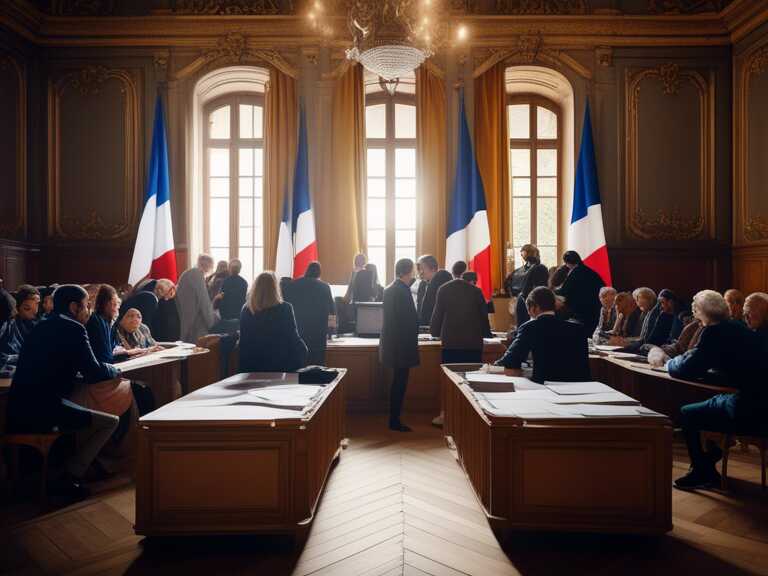
Nationalist Parties Gain Ground as France Holds First Round of Parliamentary Elections
Early French parliamentary elections show frustration with Macron's leadership, with far-right and left-wing parties gaining momentum, impacting European politics and global affairs.

On June 30, 2024, voters in mainland France participated in the first round of parliamentary elections that could potentially lead to a significant shift in the country's political landscape. The outcome of these elections, which will conclude on July 7, has the potential to affect not only France but also European financial markets, Western support for Ukraine, and the management of France's nuclear arsenal and global military force.
The electorate's frustration with economic issues, particularly inflation, and their discontent with President Emmanuel Macron's leadership, has significantly shaped the political climate leading up to these elections. Many voters perceive Macron as arrogant and out-of-touch with their daily lives, which has fueled a growing sentiment of discontent among the populace.
Marine Le Pen's National Rally party has capitalized on this dissatisfaction, leveraging platforms like TikTok to advance their anti-immigration stance and has emerged as a frontrunner in pre-election opinion polls. Additionally, a newly formed coalition on the left, the New Popular Front, poses a formidable challenge to Macron's centrist alliance Together for the Republic.
Voter Turnout and Key Figures
The elections saw 49.5 million registered voters participate in selecting the 577 members of the National Assembly, France's influential lower house of parliament. Notably, the voter turnout at midday stood at 25.9%, surpassing the turnout during the 2022 legislative elections, indicating a heightened level of civic engagement.
Presidential Response and Public Concerns
Emmanuel Macron's decision to call for early elections in response to his party's defeat in the European elections earlier in the month reflects the significance of these parliamentary elections. Voters have been vocal about a wide spectrum of concerns, ranging from immigration to the rising cost of living, underscoring the deep divisions within the political landscape.
Impact on International Relations
The potential rise of far-right parties, as indicated by pre-election polls, could have notable repercussions on France's domestic and international policies. Notably, Macron's gamble to rally moderate forces in the wake of the European Parliament election defeat may face formidable challenges.
The complexity and unpredictability of the voting system pose challenges in accurately predicting the overall makeup of the next National Assembly. The intricate maneuvering of political parties between the rounds to form alliances further adds to the uncertainty surrounding the election outcomes.
The elections have garnered international attention, with global leaders and analysts closely monitoring the unfolding developments. The potential transformation in France's political landscape may have ripple effects not only within the European region but also on the global stage.
Challenges in Overseas Territories
The electoral process in France's overseas territories, particularly in New Caledonia, has been notable for its own set of challenges. A protracted curfew due to recent violence has impacted the election process, highlighting the diverse and complex dynamics shaping the electoral landscape.
Final Implications
As the first-round results provide a snapshot of voter sentiment, the intricate negotiations and alliances between parties in the run-up to the concluding round will ultimately shape the composition of the National Assembly. The outcome of these elections will not only redefine France's political arena but will also resonate on the international stage, making it a pivotal moment in the country's contemporary history.
Share news















